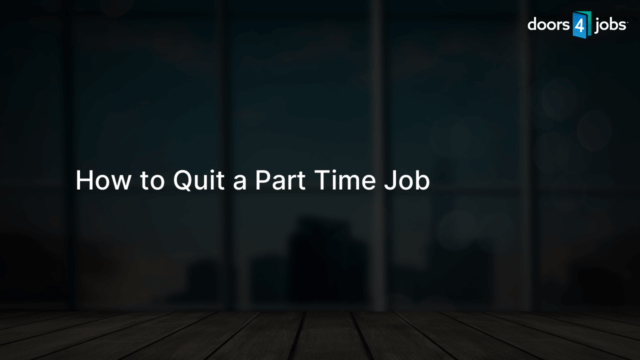If you’re struggling to decide whether to quit your job, take this quiz to make an informed decision. Answer questions about your job satisfaction, expectations, and future plans to receive personalized advice on if it’s time to pursue new career opportunities or stay in your current position.
Introduction
Deciding when to quit a job is a critical life decision. To help you make an informed choice, take the ‘Should I Quit My Job Quiz’. This quiz will evaluate your satisfaction, expectations, and future plans, providing personalized advice on whether it’s time to pursue new opportunities or focus on your current position.
Job Satisfaction
1. Am I happy with my current job role?
If you are dissatisfied with your current job role, consider whether there are ways to improve your situation or if it may be best to explore other opportunities.
2. Does my work environment support me?
A supportive work environment promotes growth and development. Assess if your workplace offers support, and if not, consider moving to a more positive environment.
3. Am I fairly compensated?
Review your salary, benefits, and work-life balance. If you’re not fairly compensated, it may be time to seek a better opportunity or discuss your concerns with your employer.
Expectations and Future Plans
4. Are there opportunities for growth in my current position?
A lack of growth opportunities could be a sign that you need to move on. Determine if your current job offers the potential for advancement that aligns with your career goals.
5. Can I see myself doing this job in the long-term?
Envision your future in your current role. If you can’t imagine a long-term commitment, it might be a sign that you should seek other options.
6. Is my job aligned with my values?
If your job doesn’t align with your values, it can lead to dissatisfaction. Reflect on whether your position matches your personal beliefs and values.
Alternative Career Options
7. Have I researched other career paths?
Explore alternative career options and assess how well they align with your skills, interests, and long-term goals.
8. Am I prepared for the challenges of change?
Prepare for the potential challenges of job hunting, skill development, and networking, as these can be hurdles to overcome when seeking a new opportunity.
9. Have I updated my résumé and LinkedIn profile?
Ensure your résumé and LinkedIn profile are up-to-date and reflect your skills, experience, and accomplishments, as these can increase your chances of landing a new job.
Job Security and Stability
10. Is my job secure?
Consider the stability of your current role and company. If you feel that your job is at risk due to factors such as downsizing or industry changes, it might be time to consider other options proactively.
11. What are the prospects for my industry?
Research your industry’s future outlook. If your industry isn’t promising or experiencing stagnation, it may be wise to start exploring other sectors that offer better opportunities and growth potential.
Impact on Personal Life
12. How does my job affect my personal life?
Analyze the impact of your career on your personal life, including health, relationships, and overall well-being. If you’re finding it difficult to maintain a healthy balance, consider other opportunities with a more favorable work-life balance.
13. Am I willing to make sacrifices for a new opportunity?
Changing jobs may require making some sacrifices, such as a temporary decrease in salary or relocation to a new city. Consider your willingness and ability to make such adjustments in pursuit of a better opportunity.
Networking and Support
14. Am I engaging with my professional network?
Networking can be essential in exploring new opportunities and receiving advice from others who have faced similar decisions. Connect with peers, mentors, and industry experts to expand your network and gain valuable insights.
15. Do I have a support system to help me through the transition?
Transitioning to a new job or industry can be challenging. Ensure you have a support system in place, including friends, family, and mentors, to help you navigate the difficulties that might arise during your job search or career change.
Final Thoughts and Analysis
16. Evaluating Quiz Results
By reflecting on the questions above, you’ll gain a deeper understanding of your current job satisfaction and future prospects. Use your honest responses to guide you in determining if it’s time to quit or if you should invest more effort into your current position.
17. Making a plan
If you decide that a career change is right for you, develop a strategic plan that includes updating your résumé, expanding your network, and identifying potential employers. Use your newfound insights to guide your actions, helping you transition into a more fulfilling role.
Frequently Asked Questions (FAQ)
In this section, we’ll address some frequently asked questions related to the ‘Should I Quit My Job Quiz’ and offer concise and direct answers to provide further information and clarity.
How do I know if my job dissatisfaction is temporary or long-lasting?
Reflect on the root causes of your discontentment, considering personal and external factors. If the issues can be resolved over time through communication, problem-solving, or personal growth, the dissatisfaction may be temporary. However, if the issues are deeply rooted in your role, company culture, or industry, your dissatisfaction might be long-lasting.
How can I discuss my concerns with my manager professionally?
Prepare for a meeting with your manager by outlining specific concerns related to your job satisfaction or growth potential. Present the concerns respectfully and propose potential solutions, such as additional training, altered responsibilities, or revisiting compensation. Open communication demonstrates your commitment and proactive approach to resolving issues.
What are some strategies for finding new job opportunities?
Research job listings on online platforms, leveraging your professional network, and connecting with recruiters in your industry. Attend networking events or job fairs, join relevant professional associations, and expand your skillset through workshops, certifications, or courses to increase your marketability and connect with potential employers.
What steps should I take if I decide to change careers completely?
Identify transferable skills and areas of interest, conduct research on prospective industries or roles, and seek guidance from mentors or individuals experienced in the field. Invest in skill development or further education if necessary, expand your network within the new industry, and tailor your résumé and LinkedIn profile to reflect your new career direction.
How do I minimize the risks associated with quitting my job?
Minimize risks by having a plan in place before quitting, including financial preparations, a strong professional network, an updated résumé, and a list of target companies or positions. Pursue job opportunities strategically and either have a new job secured or a detailed plan for your job search before leaving your current role.











